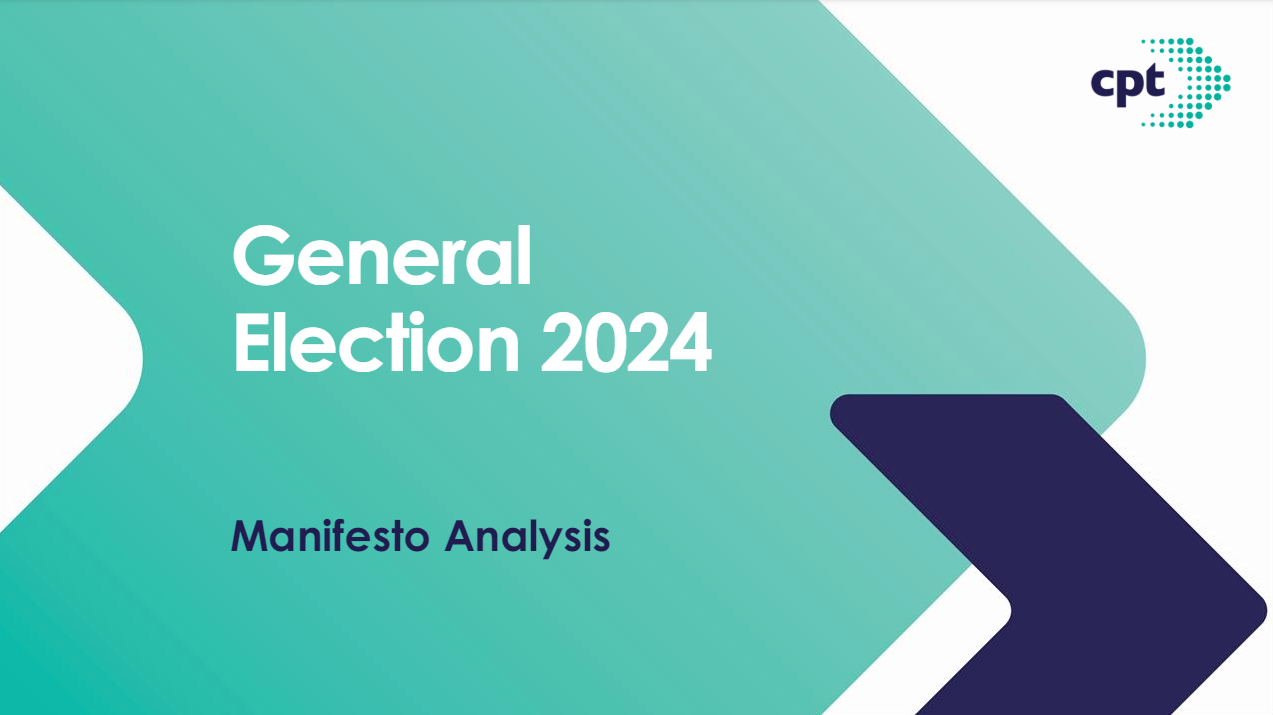June 27 2024
CPT’s Senior Public Affairs Manager, Matthew Mann, offers his analysis of general election manifestos
With just one week now until election day, some of you may be wondering where transport has been in the events and debates of the past few weeks, given it has been such a hot topic in recent years. With the main political parties having published their manifestos, we now at least have – to differing extents – a better idea about what each one would do if they enter government next week.
On a political level, the difference couldn’t be more stark. The Conservatives, behind in the polls and keen to secure any kind of boost, have included plenty of giveaways designed to attract voters from a whole range of demographics. Labour, by contrast, have a fairly small number of tax and spending commitments, certainly compared to most modern manifestos. This is for two reasons: to position themselves as fiscally responsible, and to ensure they have as much flexibility as possible if they enter government.
The Liberal Democrats and Greens have both put forward a range of interesting policies and priorities, albeit sometimes with a level of detail that you know you can get away with when you won’t be forming the next government. Reform, meanwhile, published a “contract with the people”, that was even lighter on detail. The only specific commitment on public transport was to scrap HS2, with the main focus being a raft of measures to end the “war on motorists”. This included banning ULEZ, clean air zones and LTNs, reversing the end of sale dates for non-zero emission vehicles, and scrapping most 20mph zones.
But what do the manifestos mean for bus and coach specifically? In terms of spending commitments, they are mostly quite light.
The big one is the Conservatives’ commitment to extend the £2 fare for the entirety of the next Parliament. The length of this commitment is something we welcomed, as the need for long-term certainty in the sector is something CPT has worked hard to ensure decision makers understand is critical for all elements of funding and policy.
On fares, CPT believes passengers stand to benefit if the industry and government can work together to keep fares low, particularly if investment is targeted at key groups of bus users, including under-22-year-olds. We know from polling undertaken for CPT by YouGov this month that a fare offer for young people would be popular, so it was good to see the Liberal Democrats and Greens pushing forward different fares schemes aimed at young passengers.
Labour’s manifesto did promise a long-term strategy for transport, which CPT welcomed and this is - perhaps - another sign that our sector’s need for long-term certainty is sinking in with the major parties. However, it was silent on fares and went no further than to reiterate what Labour has been saying for months about expanding franchising and lifting the ban on municipal bus company ownership. This speaks to a wider theme: whichever party comes out on top, we can expect to see much more devolution to come.
While we know from our regular engagement with the shadow transport team that Labour is aware of the key issues facing our sector – funding, fares, congestion and decarbonisation to name but a few – the fact they are keeping their cards so close to their chest means, if the polls are correct, we will likely have to wait until after the election to find out exactly how they will tackle these challenges.
There are of course plenty of policy points that will affect bus and coach beyond what I’ve sent out in this piece, so you can also read here an in-depth comparison of what the manifestos say about bus, roads, devolution, net zero and infrastructure, tax, and on work and skills.
